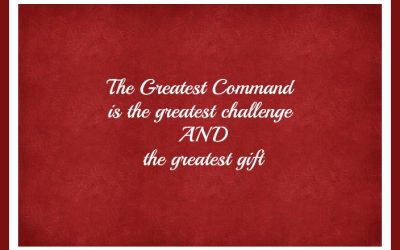Are You Mastered or a Masterpiece?
Did you know my bio is recorded in the Bible? Yup! Paul described me to a T when he wrote in Romans 7:15-19, “I do not understand what I do . . . For I have the desire to do what is good, but I cannot carry it out. For what I do is not the good I want to do; no the evil I do not want to do—this I keep on doing.”
Ugh!
Paul goes on to remind us in the next chapter that “you, however are controlled not by the sinful nature but by the Spirit, if the Spirit of God lives in you…” (Romans 8:9). To put it another way, although we may sin, we are no longer mastered by sin. Christians have a new master. So how come we still struggle with sin?
Our Nature and God’s Authority
It starts with God’s authority. He is our loving heavenly Father and He is also our Sovereign Lord. He has the right to command because of Who He is and what He has done through the sacrifice of His Son, Jesus. Sin can no longer prevent me from surrendering to the Father’s authority. Just as Paul describes himself as a servant in his letter to the Philippian church, this description applies to every child of God through Christ. Am I truly willing to be a servant by giving up my authority to rule my own life?
Let’s face it, the concept of surrender has gotten a bad rap. Surrender is often viewed as something we’re compelled to do when we’re backed into a corner with no other option. Our culture admires those who appear to live out the closing lines of William Ernest Henley’s poem, “Invictus,” which concludes, “I am the master of my fate, I am the captain of my soul.”
But biblical surrender is a willingness to submit to God’s authority without waiting for circumstances to push us there. Surrender flows from a heart attitude of obedience.
Confession time: I’ve taken a lot of credit for obedience that wasn’t obedience at all. Because it’s not obedience if I wanted to do it anyway. And delayed obedience is not true obedience, either. True obedience flows from the heart precisely when I desire to do the opposite.
How easy for us, even today, to fall into a trap of ritual and lip service without actual obedience. Isaiah prophesied it, and Jesus repeated it: “These people honor me with their lips but their hearts are far from me” (Matthew 15:8).
Our hearts. The place where we decide who truly has authority over our lives. Saying we agree isn’t enough. An emotional “high” on Sunday morning isn’t enough. It’s possible to call Jesus “Lord” without understanding what we’re saying. The Greek word for Lord is kurios, which means supreme in authority. If the Father’s supreme authority in my life is not reflected in my obedience, then my behavior contradicts my words. Our own observations bear this out: when you observe a disconnect between someone’s words and actions, which do you believe is the truth: the words or the behavior?
Choosing Obedience
Obedience is a choice. Occasional diversions may seem harmless. But they lead down a slippery slope away from the One who gave His Son to reconcile us to Him.
Our culture contributes to the situation. We are a nation consumed with the protection of rights in the name of freedom. The prophet Isaiah described this when he wrote, “Woe to those who call evil good and good evil” (Isaiah 5:20). Freedom is not the right to do what we want but the power to do what is right. And the Father empowers us to choose obedience—to do what we ought to do.
So the next time you and I are faced with choosing obedience, instead of asking:
-
- “What’s wrong with _________?” or
- “How come other Christians __________?”
Let’s ask:
-
- “How will this draw me closer to the Lord?”
- “How will this benefit those around me?”
- “Will this glorify God?”
When we do this, we move from mastered to masterpieces by the Master’s hand!






0 Comments